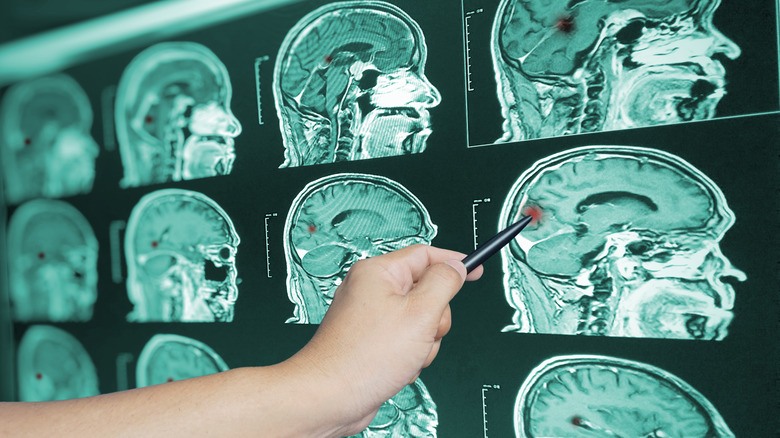Is Insomnia Common After Having A Concussion?
A concussion is a type of brain injury that occurs when there is a severe blow to the head (via Mayo Clinic). Common symptoms of a concussion include headaches, feeling dizzy or lightheaded, nausea, vomiting, trouble concentrating, and sensitivity to light or noise. While most people recover from a concussion within a couple of weeks, some people may experience longer-term effects, such as insomnia.
According to Verywell Health, insomnia is a common long-term side effect of head trauma. People with concussions may also find that they wake up frequently during the night or that they have trouble staying asleep. This can be due to the brain injury causing changes in the sleep cycle or communication issues within the neurotransmitters that regulate sleep. Depression after head trauma like a concussion is also common, and this can also contribute to insomnia.
While insomnia can be a frustrating symptom of a concussion, there are things that can be done to help manage it. It is important to stick to a regular sleep schedule as much as possible, which means going to bed and waking up at the same time each day, even on weekends. It is also important to create a relaxing bedtime routine to help signal to the body that it is time to sleep. If you have insomnia after dealing with a head injury, you should speak with a doctor to ensure that other health issues aren't at play.
What to know about concussions
A concussion is a traumatic brain injury that should not be taken lightly. It is important to be aware of the symptoms of a concussion and to seek medical attention if you believe you or someone you know has suffered one. Symptoms of a concussion can include headache, nausea, vomiting, dizziness, problems with balance, trouble concentrating or remembering things, blurry vision, and feeling tired or sluggish (via Cleveland Clinic). If you have any of these symptoms after suffering a blow to the head, it is important to see a doctor immediately.
Concussions can range from mild to severe, and they can have short-term or long-term effects. Some people may experience no lasting effects from a concussion, while others may suffer from chronic problems such as headaches or memory loss. It is important to follow your doctor's instructions for recovery and to be patient as your brain heals. When left untreated, a concussion can lead to serious complications including brain damage, so it is always better to err on the side of caution.


